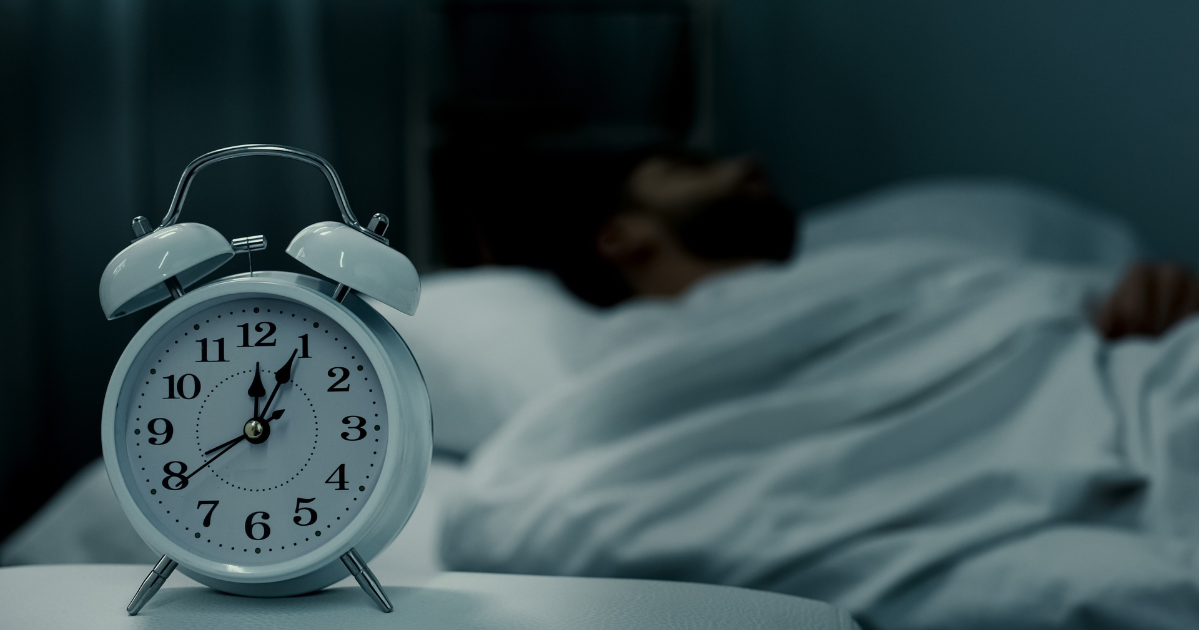While many people turn to a nightcap to fall asleep at night, alcohol’s impact on sleep can be seriously detrimental. Drinking alcohol regularly at night can quickly become a destructive spiral, leading to severe disruptions in sleep, alcohol addiction, and worsening physical and mental health over time.
At Wolf Creek Recovery in Arizona, our alcohol treatment center looks carefully at sleep outcomes as a determinant of substance use recovery. Sleep is vital for your overall health, including your mental health. With over 28 million Americans living with an alcohol use disorder, and millions more who use alcohol regularly, the consequences of drinking before bedtime are widespread.1
The Connection Between Alcohol and Sleep
Alcohol is a central nervous system depressant, which slows the body’s automatic and life-preserving functions to lower levels than normal. Part of this effect is a feeling of drowsiness, which many people mistake as being beneficial for sleep.
But while it’s true that alcohol might help you fall asleep, it can disrupt the quality of your sleep, particularly if you have more than one drink near bedtime.2
Short-Term Effects
Scientists have been investigating the effects of alcohol on sleep for decades. One of the most interesting findings from these studies is how alcohol affects sleep architecture. Sleep architecture refers to the structure of your sleep and is typically broken into four phases:
- Wakefulness
- Light sleep
- Deep sleep
- REM sleep
In healthy sleep, people will oscillate between these different sleep stages. This cycle happens several times through the night, with the early hours of sleep tending toward deep sleep and the later hours of sleep having more REM.
But when people drink alcohol before bedtime, they severely lower the amount of deep sleep and REM they get in the course of the night. They hover between wakefulness and light sleep, and even if you get a full eight hours, you can wake up feeling groggy, unrested, and fatigued.
Dehydration plays a role in this as well. Alcohol is a diuretic, meaning it causes people to urinate and sweat out their body’s water supplies. This can cause people to wake in the middle of the night to get a glass of water. Or it may cause headaches and muscle cramps that make it more difficult to stay asleep.
Long-Term Effects
Alcohol’s impact on sleep can create lasting health problems. Perhaps the most pertinent of these is the development of sleep apnea, a serious sleep disorder that can have a wide range of physical health effects. Sleep apnea occurs when the airway becomes blocked during sleep, often by muscle tissue.
Alcohol causes the muscles to relax, which can result in blocked airways. And since alcohol is a central nervous system depressant, people under the influence may not automatically respond to this blocked airway by taking a deep breath, which can cause temporary loss of oxygen into the bloodstream.
People who use alcohol to help fall asleep may also develop rebound insomnia when they stop drinking. Rebound insomnia occurs when a person develops a dependence on substances to help them fall asleep and then experiences worse insomnia than they started with when those substances are taken away.
Severe insomnia can also result from polysubstance use because of how alcohol interacts with sleep medications. Drinking can amplify the effects of sleep medications, leading to dependence and physical effects quickly.
Consequences of Sleep Deprivation
Sleep deprivation, including reduced-quality sleep due to alcohol use, can have many negative consequences. Sleep is vital to your overall fitness, and poor sleep can cause both physical and mental health implications.
Physical Consequences
Poor sleep quality has been associated with a host of adverse physical outcomes, including:
- Unexpected weight gain
- Higher risk of cardiovascular disease
- High blood pressure
- Increased risk of kidney disease
When paired with the physical effects of alcohol use disorders, the compounding stressors can quickly lead to devastating consequences.
Mental Health Implications
Similarly, poor sleep quality is related to several adverse mental health outcomes. This includes effects such as:
- An increased risk of depression
- Difficulty focusing or concentrating
- Higher rates of anxiety disorders
- Poor emotional regulation
Fixing your sleep habits and overcoming addiction is the surest way to reduce alcohol’s impact on sleep, but achieving recovery is often easier said than done.
Seeking Solutions: Treatment for Alcohol Addiction and Sleep Disturbances
Treating alcohol use disorders is about more than abstaining from drinking. Achieving a worthwhile recovery requires treating clients holistically, addressing all of their physical and mental health needs, and even focusing on things like sleep hygiene tips for individuals in recovery.
Available Treatment Options
At Wolf Creek Recovery, our facility offers several levels of care and evidence-based programming to help our clients break free from alcohol addiction once and for all. This includes treatments such as:
- Medical Detox: Can reduce or eliminate alcohol withdrawal symptoms, allow for a good night’s rest, and help people get started in recovery on the right foot
- Evidence-Based Counseling: Treatments such as cognitive-behavioral therapy, dialectical behavior therapy, and motivational enhancement therapy have all been shown in clinical research to help people overcome addiction
- Rehabilitation: While focusing on substance use is important, building supportive social networks and repairing damaged relationships are essential components of long-term success
Many people aren’t able to overcome alcohol addiction on their own. But with alcohol addiction treatment in Arizona at Wolf Creek Recovery, anyone can achieve sobriety.
Integrated Approach to Recovery
The focus on sleep is just one component of our integrated approach to recovery. By treating co-occurring mental health disorders, teaching valuable communication and life skills, and looking at our clients holistically, we can help anyone achieve not just sobriety but total health and well-being.
Get the Help You Need
Alcohol’s impact on sleep is severe and is just one small component of how alcohol addiction can lead to devastating consequences in your life. If you or a loved one is struggling with alcohol use, contact the team at Wolf Creek Recovery to learn more about our extensive alcohol treatment options available in Arizona.
Sources:
[1] https://www.samhsa.gov/data/sites/default/files/reports/rpt39441/NSDUHDetailedTabs2021/NSDUHDetailedTabs2021/NSDUHDetTabsSect5pe2021.htm [2] https://www.sleepfoundation.org/nutrition/alcohol-and-sleep
Finding purpose in pain is what Jonathon does best. He is a strong advocate for those suffering from substance use disorders. As a person in recovery, Jonathon knows how important it is to receive empathy and compassion. He recognizes that each person comes from a different set of circumstances and deserves to be valued and respected.
With a fresh perspective and compassionate attitude, Jonathon works closely with clients to help them let go of the past and know when to take necessary risks. The recovery process is ongoing, which means people need to move forward while applying the skills learned in treatment. Jonathon is a great motivator when it comes time for this!
Jonathon also places emphasis on the family unit and how it can make or break the recovery experience. Individuals with active, supportive families have far better outcomes. Jonathon realizes that it’s impossible to move mountains overnight, but with the right support team and positive attitude, anything is possible.












